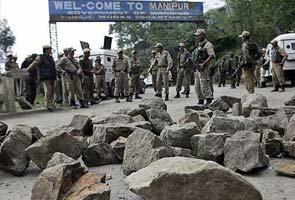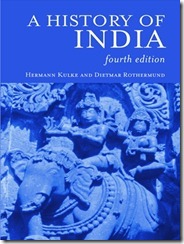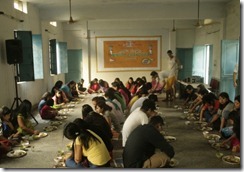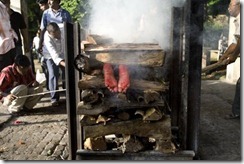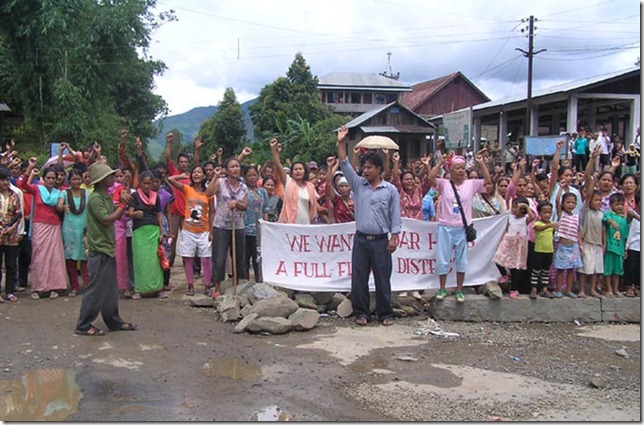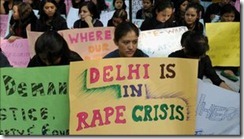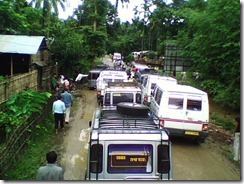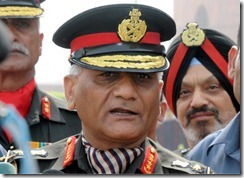By Nita Bhalla 
"Wife-sharing" haunts Indian villages as girls decline
BAGHPAT, India (TrustLaw) - When Munni arrived in this fertile, sugarcane-growing region of north India as a young bride years ago, little did she imagine she would be forced into having sex and bearing children with her husband's two brothers who had failed to find wives.
"My husband and his parents said I had to share myself with his brothers," said the woman in her mid-40s, dressed in a yellow sari, sitting in a village community centre in Baghpat district in Uttar Pradesh.
"They took me whenever they wanted -- day or night. When I resisted, they beat me with anything at hand," said Munni, who had managed to leave her home after three months only on the pretext of visiting a doctor.
"Sometimes they threw me out and made me sleep outside or they poured kerosene over me and burned me."
Such cases are rarely reported to police because women in these communities are seldom allowed outside the home unaccompanied, and the crimes carry deep stigma for the victims. So there may be many more women like Munni in the mud-hut villages of the area.
Munni, who has three sons from her husband and his brothers, has not filed a police complaint either.
Social workers say decades of aborting female babies in a deeply patriarchal culture has led to a decline in the population of women in some parts of India, like Baghpat, and in turn has resulted in rising incidents of rape, human trafficking and the emergence of "wife-sharing" amongst brothers.
Aid workers say the practice of female foeticide has flourished among several communities across the country because of a traditional preference for sons, who are seen as old-age security.
"We are already seeing the terrible impacts of falling numbers of females in some communities," says Bhagyashri Dengle, executive director of children's charity Plan India.
"We have to take this as a warning sign and we have to do something about it or we'll have a situation where women will constantly be at risk of kidnap, rape and much, much worse."
SECRET PRACTICES
Just two hours drive from New Delhi, with its gleaming office towers and swanky malls, where girls clad in jeans ride motor bikes and women occupy senior positions in multi-nationals, the mud-and-brick villages of Baghpat appear a world apart.
Here, women veil themselves in the presence of men, are confined to the compounds of their houses as child bearers and home makers, and are forbidden from venturing out unaccompanied.
Village men farm the lush sugarcane plantations or sit idle on charpoys, or traditional rope beds, under the shade of trees in white cotton tunics, drinking tea, some smoking hookah pipes while lamenting the lack of brides for their sons and brothers.
The figures are telling.
According to India's 2011 census, there are only 858 women to every 1,000 men in Baghpat district, compared to the national sex ratio of 940.
Child sex ratios in Baghpat are even more skewed and on the decline with 837 girls in 2011 compared to 850 in 2001 -- a trend mirrored across districts in states such as Haryana, Punjab, Rajasthan and Gujarat.
"In every village, there are at least five or six bachelors who can't find a wife. In some, there are up to three or four unmarried men in one family. It's a serious problem," says Shri Chand, 75, a retired police constable.
"Everything is hush, hush. No one openly admits it, but we all know what is going on. Some families buy brides from other parts of the country, while others have one daughter-in-law living with many unwedded brothers."
Women from other regions such as Jharkhand and West Bengal speak of how their poor families were paid sums of as little as 15,000 rupees ($300) by middle-men and brought here to wed into a different culture, language and way of life.
"It was hard at first, there was so much to learn and I didn't understand anything. I thought I was here to play," said Sabita Singh, 25, who was brought from a village in West Bengal at the age of 14 to marry her husband, 19 years her elder.
"I've got used to it," she says holding her third child in her lap. "I miss my freedom."
Such exploitation of women is illegal in India, but many of these crimes are gradually becoming acceptable among such close-knit communities because the victims are afraid to speak out and neighbours unwilling to interfere.
Some villagers say the practice of brothers sharing a wife has benefits, such as the avoidance of division of family land and other assets amongst heirs.
Others add the shortage of women has, in fact, freed some poor families with daughters from demands for substantial dowries by grooms' families.
Social activists say nothing positive can be derived from the increased exploitation of women, recounting cases in the area of young school girls being raped or abducted and auctioned off in public.
UNABATED ABORTIONS
Despite laws making pre-natal gender tests illegal, India's 2011 census indicated that efforts to curb female foeticide have been futile.
While India's overall female-to-male ratio marginally improved since the last census in 2001, fewer girls were born than boys and the number of girls under six years old plummeted for the fifth decade running.
A May study in the British medical journal Lancet found that up to 12 million Indian girls were aborted over the last three decades -- resulting in a skewed child sex ratio of 914 girls to every 1,000 boys in 2011 compared with 962 in 1981.
Sons, in traditionally male-dominated regions, are viewed as assets -- breadwinners who will take care of the family, continue the family name, and perform the last rites of the parents, an important ritual in many faiths.
Daughters are seen as a liability, for whom families have to pay substantial wedding dowries. Protecting their chastity is a major concern as instances of pre-marital sex are seen to bring shame and dishonour on families.
Women's rights activists say breaking down these deep-rooted, age-old beliefs is a major challenge.
"The real solution is to empower girls and women in every way possible," says Neelam Singh, head of Vatsalya, an NGO working on children's and women's issues.
"We need to provide them with access to education, healthcare and opportunities which will help them make decisions for themselves and stand up to those who seek to abuse or exploit them."
(TrustLaw is a global news service on women's rights and good governance run by Thomson Reuters Foundation. For more information see www.trust.org/trustlaw)
(Editing by Sugita Katyal)
 New Delhi: Home Minister P Chidambaram said today that supplies are available in Manipur despite the blockade entering the 92nd day although he admitted that the prices are going through the roof.
New Delhi: Home Minister P Chidambaram said today that supplies are available in Manipur despite the blockade entering the 92nd day although he admitted that the prices are going through the roof.



